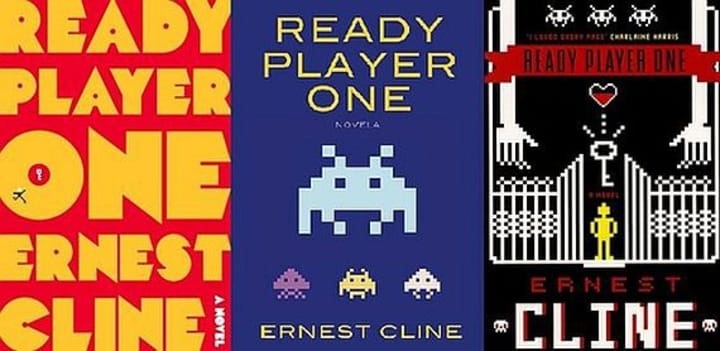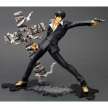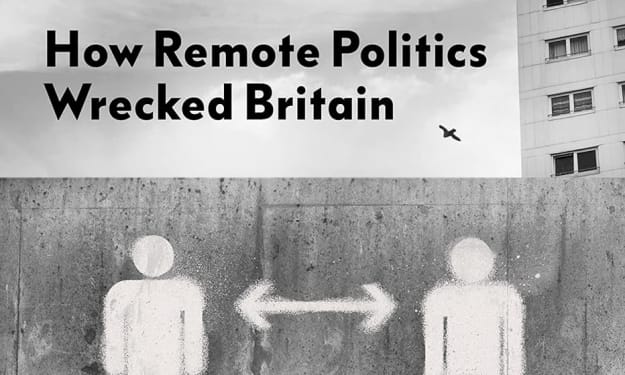"Ready Player One" Review
Book appeals to the feelings of us nerds.

In one sense, I'm not one of those people who takes excessive pride in the labels "geek" and "nerd." They are, or were, juvenile insults, and efforts to reclaim them and make them positive, while well-meaning, often come off as corporate, fake, forced, and cheesy. It also seemed to me that, while I don't mind celebrating my hobbies, it's important to me that I remain humble. That is, a lot of people give "geek" culture a bad rap because they're out there being just as bad as the people who bullied them, belittling other people as dumb or common for not liking the same things as them, or having tastes more aligned with mainstream popularity.
But this really doesn't help our cause, which I think should be about geekdom as EQUAL to other types of fandom, not superior. Sure, playing Dungeons and Dragons may objectively use more brain power than chatting with friends at a party, or watching reruns of batshit reality shows. But that doesn't mean everything geeky people like is a hardcore brain exercise, or that everything non-geeky is dumb and shallow.
This is especially true now that film and TV adaptations of what were once niche geek-only franchises, like Marvel comics and Game of Thrones and so on, are massively popular. Now, you can presumably be a "geek" without even reading a book. So, this attitude that "my hobbies are better and make me better than everyone" I see sometimes, needs to go.
Ready: Player One

So, Ready Player One is a science fiction novel that, with the use of a metric crap-ton of nerdy references, plays into this weird inferiority/superiority/persecution complex that some of the worst geeks have. Is it a bad story? No. I found it to be, on the contrary, a thoroughly enjoyable and engrossing read. But I did kind of feel like the book was feeding my ego, especially by patting me on the back for getting geek culture and gamer references, a little too much.
I kind of felt the same way about the Harry Potter franchise. Of course the stories are not without literary merit—but a lot of their appeal was that they make people who have been victimized by society feel special and important. Harry Potter makes you feel like one of its world's wizards or witches; someone with special powers and knowledge the rest of the world doesn't possess. Harry Potter fans often then refer to non-Harry Potter fans, or non-nerds, as "Muggles." I don't think J.K. Rowling intended for this to happen, but it's an undeniable consequence. I see a similar thing happening with Ready: Player One.
The Plot
Ready: Player One takes place in a world where reality has declined while online virtual communities have thrived. A technology called "The OASIS," pioneered by a man named James Halliday, allows people to access a virtual reality full of games, movies, videos, books, etc., essentially creating a second internet. But in the OASIS, players are immersed into the experience with VR headsets, making the experience feel a lot more real.
Halliday went to great lengths to make the OASIS, and public education systems he set up therein, accessible to the poor. Our protagonist, Wade Watts, goes to school in the OASIS. In real-life, he lives with his aunt in "the stacks," which is like a trailer park, but with many trailers stacked on top of each other. The real world has gone completely to shit, in other words, as we notice through Wade's eyes.
When Halliday dies, he leaves a will in the form of an in-game contest. The challenges will test everyone, but the greatest player that can beat them will win the ultimate prize: inheritance of Halliday's vast fortune, and control of the OASIS.
Wade and his buddies are "good guys" largely because they search for clues to "Halliday's Easter egg" on their own, which respects the spirit of the contest. But there is a corporation, IOI, that wants to control the OASIS, so they throw ridiculous corporate resources at the puzzle, and make finding the egg into a business. IOI employees all have identical avatars in the OASIS, and are all given 6-digit identity codes instead of names. So, good guys, called "gunters" (from "egg hunters") call these guys "the Sixers." So, Wade, going by the name "Parzival" in the OASIS, and fellow gunters are trying to beat the Sixers to each clue and key in the "game," even though IOI is a hugely rich and powerful company with a ton of research, the best technology, and a huge number of what are basically debt slaves toiling away for them.
Review
The book was immersive, exciting, fun to read, and at times felt almost too real. The large number of pop culture and nerd references made their world feel more like the real world, because in the real world, people are obsessed with this stuff. In that world, almost everyone was obsessed with it, because it became the key to unlocking a great fortune.
It was validating and a bit of wish fulfillment. I mean, we nerds do tend to relish in our pursuit and ownership of esoteric insider knowledge, we love to whip it out during trivia, and our eyes light up whenever we get a chance to talk about our favorite things, such as at conventions.
It also validates the spirit of nerdiness as an anti-corporation community, the spirit of which can be ruined by efforts by big corporations to sell us shit. We are a tribe of digital pirates, music parodists, fan artists, and fanfic writers. We appropriate corporate artistic works with gleeful abandon, moderating our video games, painting our own anime t-shirts, etc. When we do that, we're making a statement, that we are deciding we own our favorite characters and franchises, collectively. Whether that statement is a problem or not is a discussion for another time. Back to the book.
Similarly, in Ready: Player One, the Sixers are bad guys because they think their money and power can buy their way to the top of the scoreboard. But the scoreboard is for fans of Halliday to rule, not corporations. All IOI wants is to get their hands on Halliday's assets, so they can start charging people for access to the OASIS, which by itself, Halliday made free, making money from selling virtual items and transportation between worlds within the OASIS. I felt like, for a story about a teenage nerd that spends a lot of time simply jacking off to nerd culture references, that was a surprisingly interesting and intelligent conflict, relevant to the real world.
As for the romantic subplot? Well, like many, it was kind of forced, unnecessary, and predictable. But at the conclusion of the book, I really was happy for Wade and his love interest, Art3mis.
One thing I want to gripe about—the movie, just like they did with Hermione in Harry Potter, is making her supermodel-gorgeous, instead of daring to cast a female lead who might have a few extra pounds, which Art3mis was described as having. One reason that this pisses me off is because it specifies that Art3mis bucked OASIS norms and had an avatar that more closely resembled her, except for one flaw she wanted to hide. She was deliberately rebelling against the social norm of having a generically beautiful avatar. So, Art3mis being so gorgeous kind of makes me think the people making the movie won't really understand what made her character so great in the first place.
It might be a bias on my part, or just that I've seen so many female geeks at conventions, but they're not all supermodels, and I have a hard time believing a supermodel-gorgeous girl would also be a legitimate hardcore geek. Committing to one's looks is a career and hobby in and of itself for some women (yes, I've marathoned Top Model, guilty pleasure). And, when it becomes a full-time job just to look good, which it is when anyone looks really damn good, they don't also have time for geekery.
Similarly, most real "nerd chicks" I've met don't have time for excessive makeup and primping. I could see it if she were a "makeup geek" type, but Art3mis is not. She was described as short, overweight, and likely would have been frumpy, because her blog and being a gunter is an all-consuming obsession for her. So why cast a supermodel?
I simply don't like it when characters are way more attractive in the movies than they were described in the books. It usually happens to female characters, as if only one kind of face and body is allowed on screen—a perfect swan. And because these girls are so pretty, they're almost afraid to emote while acting, nearly ruining whatever movie they're in because of their weirdly flattened affect. When will Hollywood stop being afraid to show us some average-looking girls who are more right for their roles, and less afraid to show big emotions—yes, even if it contorts their faces a bit? I'm not horrified by the idea of seeing a female on screen who is less than perfect. It's one thing I like about British television and movies, they really do care about the craft of acting and giving a good performance first, and being pretty comes second. In American films though, why does it always have to be the opposite?
Ok, that's enough ranting about that... Sorry...
Some of the plot twists were really well-done, and it's hard to surprise me, but this book managed to. Overall, I'd say this book was successful, because it emotionally moved me, and was never dull. The book itself, like its immersive OASIS arcade games, sucks you in, and then it's nonstop action and fun. Get it for yourself, or the geeky gamer in your life. And I would definitely recommend the Audible version narrated by Wil Wheaton, if you're into that sort of thing. Definitely a terrific performance.
Rating for Ready: Player One: 9/10
About the Creator
Tron Kurosawa
I'm here to discuss gaming and geek culture, from an insider's perspective. To discuss a variety of ideas, in a way that is hopefully less boring than the academic way and less manipulative than mainstream journalism. Game reviews maybe?






Comments
There are no comments for this story
Be the first to respond and start the conversation.